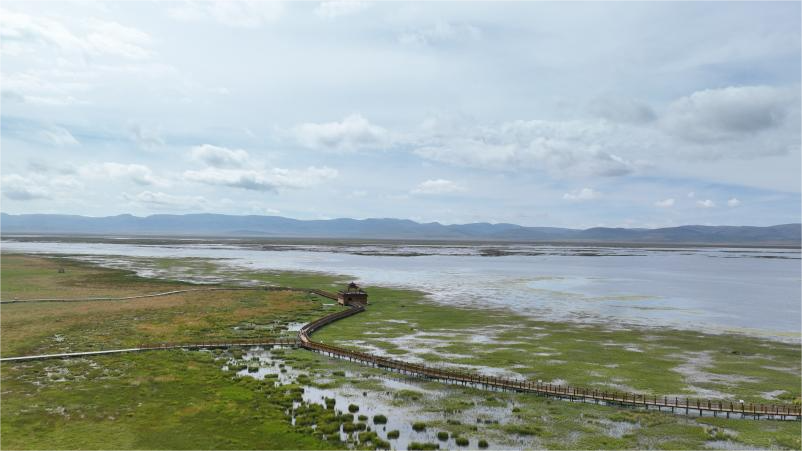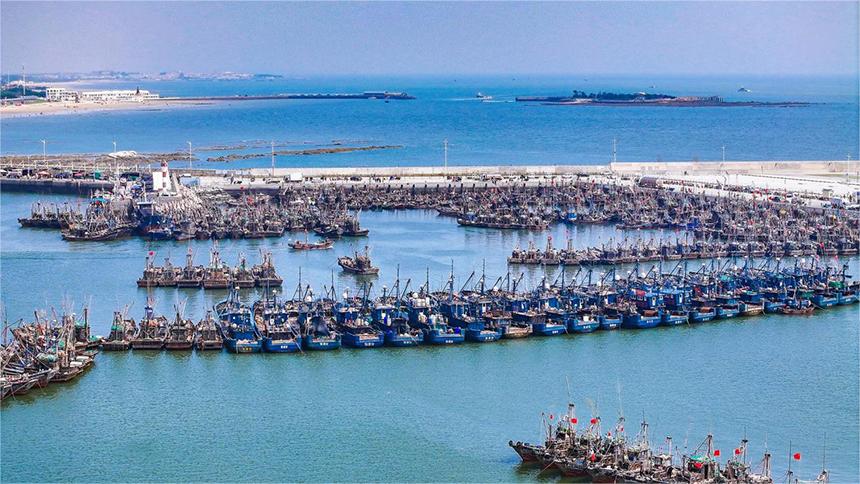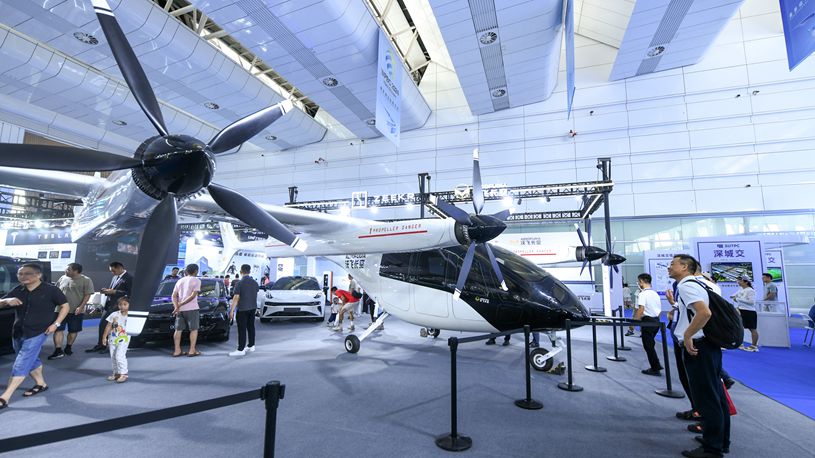China-Africa cooperation paves way toward better future
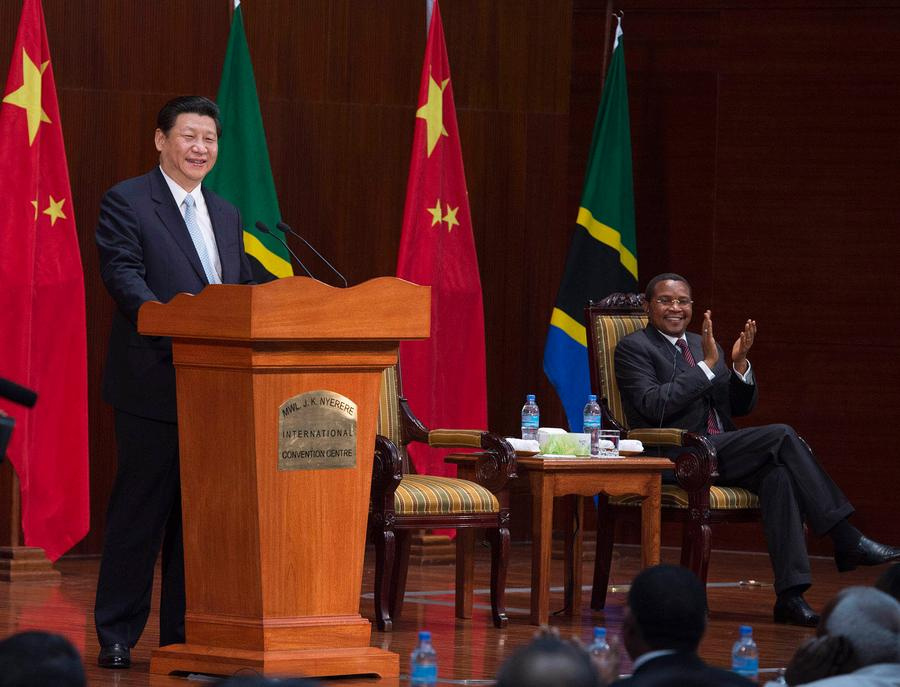
Chinese President Xi Jinping (L) delivers a speech at the Julius Nyerere International Convention Center in Dar es Salaam, Tanzania, on March 25, 2013. (Xinhua/Wang Ye)
During his first visit to Africa as Chinese president, Xi Jinping laid a strong foundation for what has become the China-Africa community with a shared future. Speaking at the Chinese-aided Julius Nyerere International Convention Center in Dar es Salaam, Tanzania, on March 25, 2013, Xi outlined his vision.
In his speech titled "Trustworthy Friends and Sincere Partners Forever," Xi announced four principles guiding China's policy towards Africa: "zhen shi qin cheng," meaning sincerity, real results, amity and good faith. These principles largely shape the agenda and initiatives of the Forum on China–Africa Cooperation (FOCAC).
President Xi said that China’s approach to its African partners is rooted in "sincerity." In conducting cooperation with Africa, China emphasizes "real results." In strengthening its friendship with Africa, China focuses on "affinity." Lastly, in resolving problems that may arise in cooperation, China underscores the importance of acting in "good faith."
While reviewing the China-Africa historical relationship, President Xi insisted that the defining features of China-Africa relations are sincerity, friendship, mutual respect, equality, mutual benefit and common development.
Since President Xi announced the four principles, China has remained committed to them. The two sides have cooperated and stood together in various sectors and fields, pressing ahead on the path of solidarity and cooperation. They have stood for justice amid shifting global dynamics and looked out for each other in the face of the COVID-19 pandemic. These actions have taken China-Africa relations to new heights and ushered in a new stage of partnership.
China’s focus on "real results" in its relationship with Africa addresses a long-standing gap. For centuries, Africa experienced colonialism, imperialism, continuous exploitation, and an unfair and unjust international order. This system, created by former colonial powers and Western nations, has too often neglected Africa's real needs and development.
The four principles have guided the China-Africa relationship toward modernization and unprecedented human development. These principles have transformed Africa into an engine of economic growth, bringing hope to millions of Africans and, more significantly, elevating the continent’s role in global development.
Since the inception of these principles, whether in FOCAC summits and ministerial meetings, gatherings of China-Africa leaders at multilateral or bilateral levels, or various international forums, President Xi, demonstrating his dedication to Africa’s development, has announced major programs that contribute Chinese wisdom and solutions to modernizing the continent. This approach demonstrates China's commitment to turning words into action.
For instance, at the 2018 FOCAC Beijing Summit, President Xi proposed building a closer China-Africa community with a shared future, a proposal unanimously endorsed by African leaders.
In addition, leading up to the Eighth FOCAC ministerial conference in Dakar, Senegal, in 2021, China and Africa jointly prepared the China-Africa Cooperation Vision 2035. Under the vision's first three-year plan, China pledged to work closely with African countries to implement various projects.
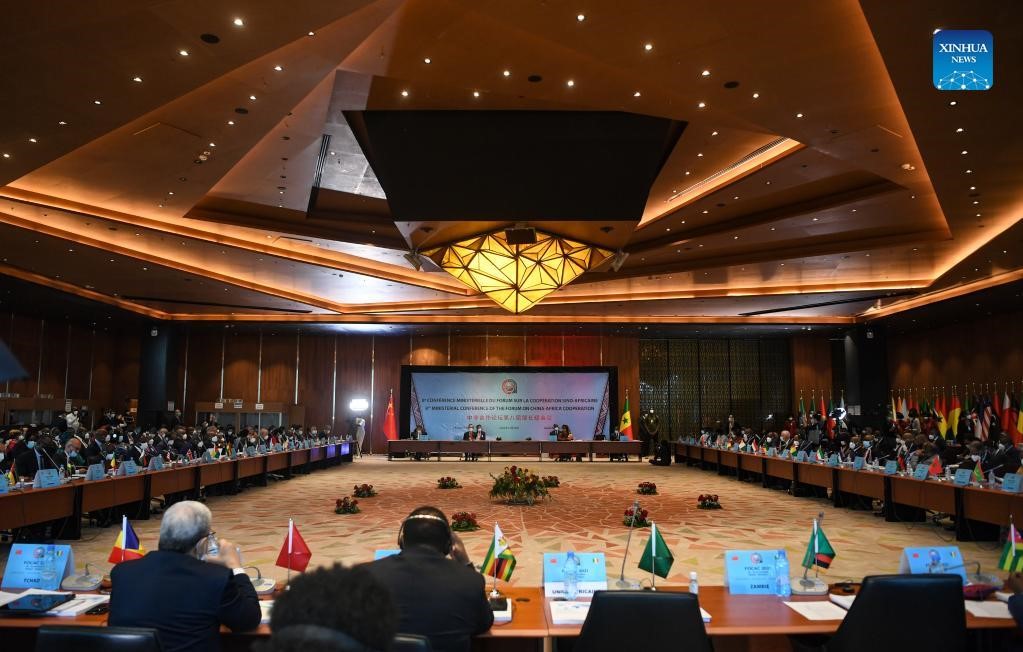
The Eighth Ministerial Conference of the Forum on China-Africa Cooperation (FOCAC) in Dakar, Senegal, Nov. 30, 2021. (Xinhua/Li Yan)
In his speech at the opening ceremony of that conference, President Xi announced nine projects spanning various sectors. These included medical and health, poverty reduction and agricultural development, trade promotion, investment promotion, digital innovation, green development, capacity building, cultural and people-to-people exchange, and peace and security. These wide-ranging programs are already showing tangible results in almost all African countries.
For instance, in the agriculture sector and poverty reduction, currently the backbone of most African economies, President Xi announced that China would undertake 10 poverty reduction and agricultural projects for Africa and send 500 agricultural experts to the continent.
Regarding capacity building and cultural and people-to-people exchange programs, President Xi said China would help build or upgrade 10 African schools and invite 10,000 high-level African professionals to seminars and workshops.
He also vowed that China would implement the "Future of Africa" project, focusing on vocational education cooperation between China and Africa, and also start an employment "through train" scheme for African students in China. Additionally, Xi pledged that China would continue to work with African countries to set up "Luban Workshops" and encouraged Chinese companies in Africa to create at least 800,000 local jobs.
He called for China and Africa to deepen practical cooperation and open new prospects. This includes expanding trade and investment, sharing experience on poverty reduction, strengthening cooperation on digital economy and green development by promoting solar, wind and other renewable energy sources, and developing small- and medium-sized enterprises (SMEs).
Xi's words and China's commitment to Africa have significantly influenced the continent's development agenda, especially Agenda 2063. This strategic framework aims for inclusive social and economic development, continental and regional integration, democratic governance, and peace and security. Its major goal is to reposition Africa as a global player.
Food insecurity is a chronic problem in many African countries. A Tanzanian Swahili proverb captures its importance: "Chakula ni uhai" – food is life. Recognizing this, China has invested heavily in modernizing African agriculture by introducing advanced agro-technologies, improving efficiency and productivity, and supporting school feeding programs.
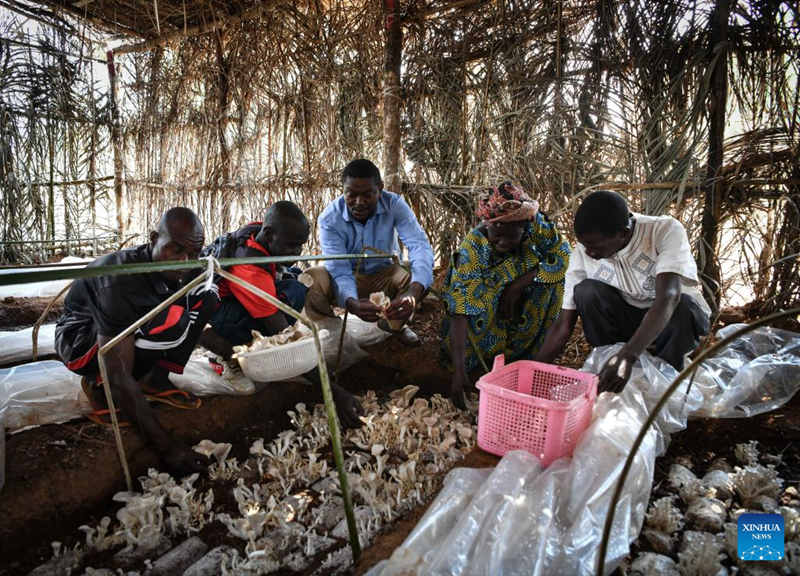
Pierrette Wamoundjou, second from right, picks mushrooms with villagers in Gba village near Bangui, Central African Republic, Feb. 5, 2024. (Xinhua/Han Xu)
One transformative technology is Juncao, a versatile grass developed by Lin Zhanxi from China's Fujian Agriculture and Forestry University (FAFU) in the 1980s. Juncao has benefited more than 100 countries worldwide. Over the years, the Juncao research team led by Lin has trained more than 8,000 people from African countries, helping farmers combat poverty and promoting China-Africa cooperation. Juncao technology has now taken root in more than 40 African countries.
Another game-changing development is a new rice variety developed by the Shanghai Agrobiological Gene Center (SAGC), which is contributing to food security in Africa. The rice variety, developed by a team led by Chief Scientist Luo Lijun from SAGC, offers new hope for eliminating hunger across the continent. This variety conserves water and fertilizer while maintaining high, stable yields. Already promoted in over 10 African countries, it has gained approval from governments in Uganda, Burundi and Burkina Faso, with local farmers showing strong enthusiasm for its potential.
Regarding manufacturing, trade and commerce, Chinese enterprises have helped strengthen Africa's industrial foundation. This has been achieved through the construction of industrial parks, capacity building, technology transfer and talent cultivation across various sectors, including manufacturing, the digital economy, medicine, logistics and infrastructure.
According to China's Ministry of Commerce, China has remained Africa's largest trading partner for 15 consecutive years, with bilateral trade reaching a record $282.1 billion in 2023. The ministry said in its latest press conference that China and African countries have developed closer economic ties with ever-increasing trade and diversified commodities and services.
In terms of investment, China-Africa investment cooperation has grown steadily. As of the end of 2023, China's direct investment in Africa exceeded $40 billion, making it one of Africa's major sources of foreign investment.
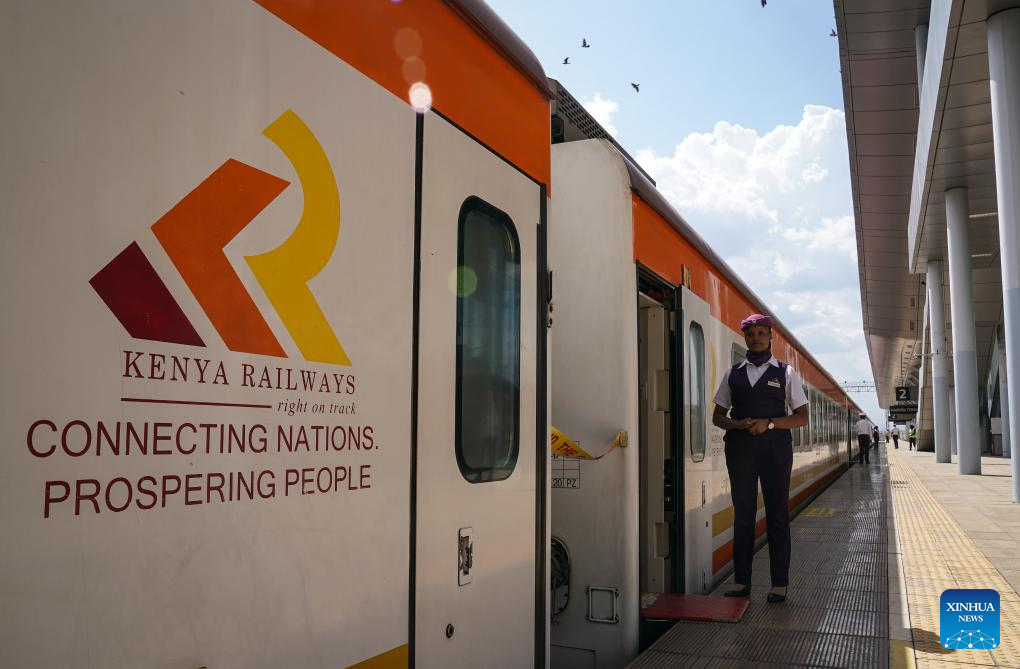
A stewardess stands by a train to Mombasa at Nairobi Terminus station of the China-built Mombasa-Nairobi Standard Gauge Railway in Nairobi, Kenya, Sept. 20, 2023. (Xinhua/Han Xu)
Meanwhile, China has undertaken various signature infrastructure projects that have transformed the image of particular African countries and significantly impacted lives.
These developments demonstrate that President Xi's commitment to Africa and his four principles of sincerity, real results, amity and good faith have shaped China-Africa ties. Through platforms such as the Belt and Road Initiative and FOCAC, this relationship has transformed the narrative about Africa from "the land of the sleeping giant" to a "vigorous land of hope and vitality," making a huge contribution to global growth and sustainability.
Photos
Related Stories
- Xi proposes action plans to jointly advance modernization with Africa
- Xi calls for building all-weather China-Africa community with shared future for new era
- Hunan-Africa cooperation: Building China-Africa relations from the provincial level
- China to implement 10 partnership action plans with Africa to advance modernization: Xi
- Feature: Chinese medical technology attracts visitors at East Africa healthcare expo
- Explainer: What makes China and Africa natural green partners
Copyright © 2024 People's Daily Online. All Rights Reserved.






